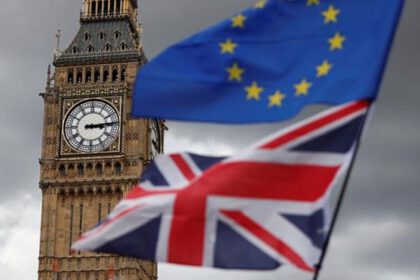
The UK is once again emerging as a preferred study destination among international students
It’s more than three years now since the UK voted to opt-out of European Union (EU), Brexit has been a dominant topic of discussion among the politicians forcing crucial issues like higher education to slip through the gaps. With the deadline for the withdrawal now extended till 31 January 2020, the uncertainty still prevails around whether Brexit will have any effect over the academic aspirations of international students willing to study in the UK.
Brexit: Scenario before and after for international students
The EU follows relaxed movement rules to enable easier immigration to all European countries, thus streamlining and easing the process of studying abroad for both UK and EU students alike. Since the residents of EU nations are usually able to study in other EU nations as ‘home students’, their fees are generally lower or non-existent in comparison to the fees charged to international students. Post-Brexit plans will not only bring bad news for UK students willing to study in mainland Europe but will also affect the EU students. Proposals from Britain’s education ministry have stated that from 2021 the UK may start charging overseas EU students the same fees as charged to the other international students. This means that EU students would have to pay somewhere between £10,000 and £35,000 a year to attend a university in England.
Moreover, Britain’s exit from the EU can possibly affect the country’s reputation as one of the top study abroad destinations. It can complicate the student visa process, making it more difficult for international graduates to secure jobs in the country due to fluctuations in work visa policies.
There is also a possibility of getting no scholarships in the case of certain universities in the UK. While Brexit may not impact the UK based scholarships like Commonwealth or Great, it might hinder the probabilities of international students planning to participate in EU-based grant opportunities through programmes like Erasmus+.
Despite all these apprehensions, a recent study by the GMAT council reported that international students are still keen to study business in the UK. In fact, Brexit is expected to bring a considerable positive impact on Nepali students interested in pursuing higher education in the UK, especially those willing to register for the postgraduate programmes at UK universities. With the British government revealing its ambitious immigration plan underlining the need for skilled professionals in the UK economy, the admission of Nepalese students and other migrants from the non-EU regions will hugely benefit from such a demand and favourable immigration policies.
Changing policies in the UK might be a boon for International Students
A new set of immigration rules drawn by the UK, which will come into effect from 2021 will work in favour of non-EU foreign students. As per the new rules, international students will be permitted to stay back in the UK for 2 years to look for suitable employment after completing their graduate and postgraduate studies. Meanwhile, for Ph.D. students, the post-study work period will be stretched to one year. This will open up multiple opportunities for foreign students, who can now seamlessly switch to a skilled work visa once they find a job after the completion of their studies.
Earlier, the then Home Secretary Theresa May had eliminated the post-study work visa as a part of the country’s immigration crackdown in 2012, which was discouraging students to apply in UK universities. In spite of housing the world capital of higher education (London) and offering world-class education, the UK was witnessing a low inflow of foreign students. The present government’s restoration of its two-year post-study work visa policy will offer a fair game for the international students to secure a place at a prestigious UK university.
That said, the UK is once again emerging as a preferred study destination among Nepalese students and other international students. However, despite these promising policies, the future remains uncertain until Britain departs from the EU in January 2020.




